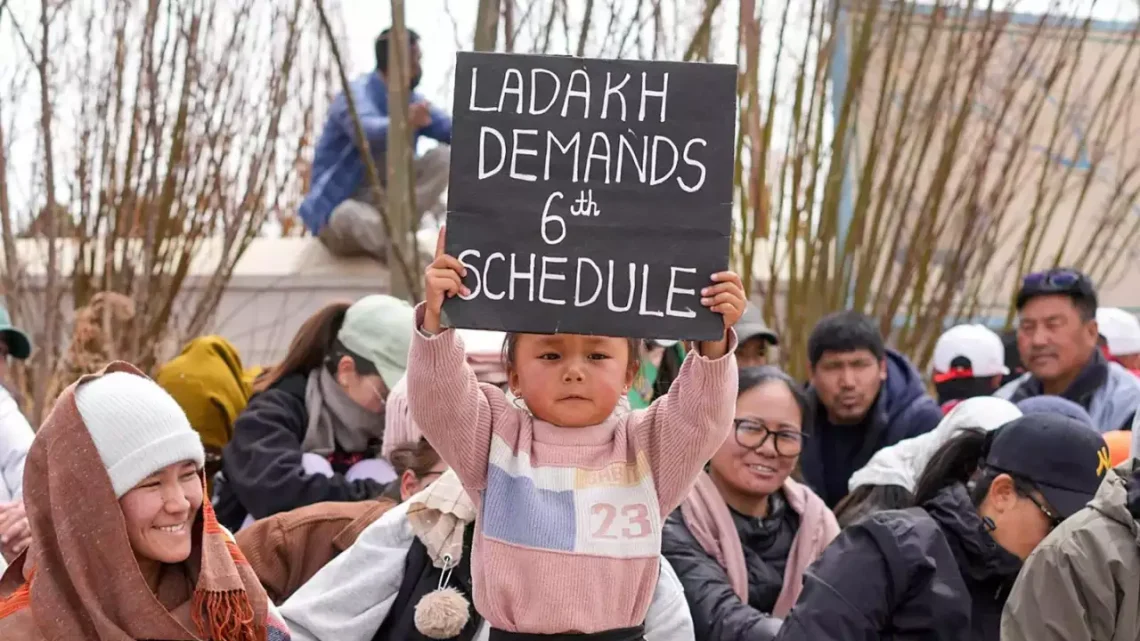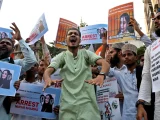
Protesters Maintain Hunger Strike in Delhi, Advocating for Ladakh’s Rights
October 10, 2024Ladakhi climate activist Sonam Wangchuk and his supporters are in the midst of an indefinite hunger strike in Delhi. They are fighting for the rights of the people of Ladakh, a region under Indian occupation in Jammu and Kashmir.
Wangchuk and his group are stationed outside Ladakh Bhawan, where they have been protesting for five days. Their hunger strike, which began on Sunday, aims to secure essential rights for Ladakh, including Sixth Schedule status.
Despite the gravity of their situation, the activists have received no response from the Indian government. Wangchuk expressed frustration, noting that 25 individuals continue their hunger strike in the sweltering heat. “It’s crucial for the Indian government to engage with the Leh Apex Body (LAB) and Kargil Democratic Alliance (KDA),” he stated. Ignoring the voices of border residents only undermines national interests, he warned.
Activist Mehdi revealed troubling health concerns among participants. Medical tests show many are suffering from low blood pressure. “We are enduring 40-degree heat and sleeping outside. Some of us are elderly, dealing with diabetes and blood pressure issues, yet we won’t back down,” he asserted defiantly.
Another protester, Liyaqat, criticized the restricted access to Ladakh Bhawan. “We’re not allowed to enter. Students hoping to meet Wangchuk have been turned away. It’s disheartening to see our voices silenced in a supposed democracy,” he lamented.
Wangchuk and his supporters embarked on a march from Leh to Delhi, but they faced detention at Delhi’s Singhu border on September 30. This ‘Delhi Chalo’ initiative, organized by the LAB and KDA, aimed to highlight their fight for Ladakhi rights. They were released by Delhi Police on the night of October 2.
Yet, Wangchuk claims he remains effectively detained at Ladakh Bhawan, leading to their protest there after being denied permission to gather at Jantar Mantar. This highlights the lack of space for dissent and dialogue in the current political climate.
The activists are demanding a meeting with senior Indian officials, including Prime Minister Narendra Modi. Their list of demands is extensive: inclusion under the Sixth Schedule, statehood for Ladakh, a public service commission, and separate Lok Sabha seats for Leh and Kargil districts.
The struggle of Wangchuk and his supporters epitomizes the fight for justice in a region that feels abandoned. Their hunger strike is not merely a protest; it is a desperate plea for recognition and rights that have been systematically ignored.
In a democracy, voices must be heard. The ongoing neglect of Ladakhi aspirations is a shameful indictment of the Indian government’s priorities. As the hunger strike continues, the pressure mounts for the authorities to respond. The world must watch closely as these brave activists demand their rightful place in the national conversation.

